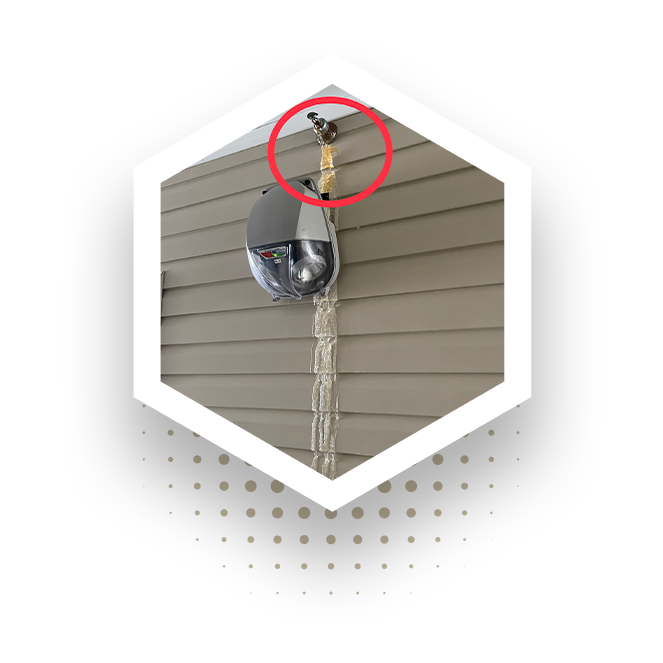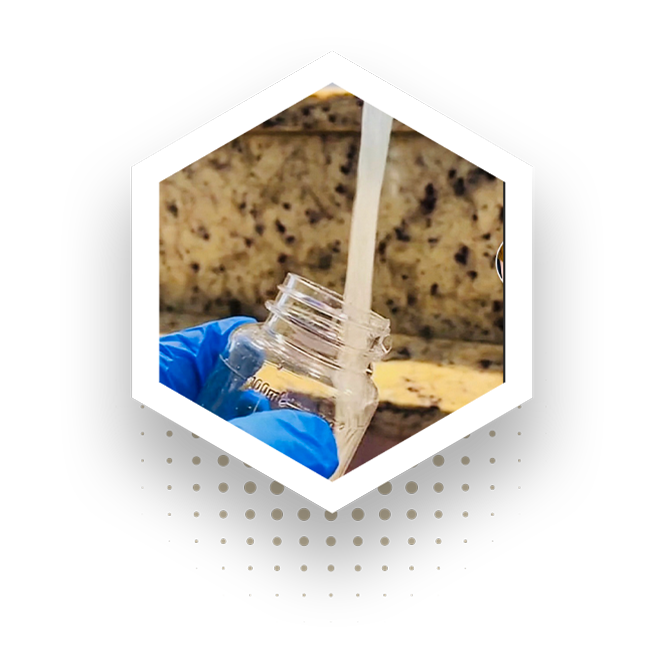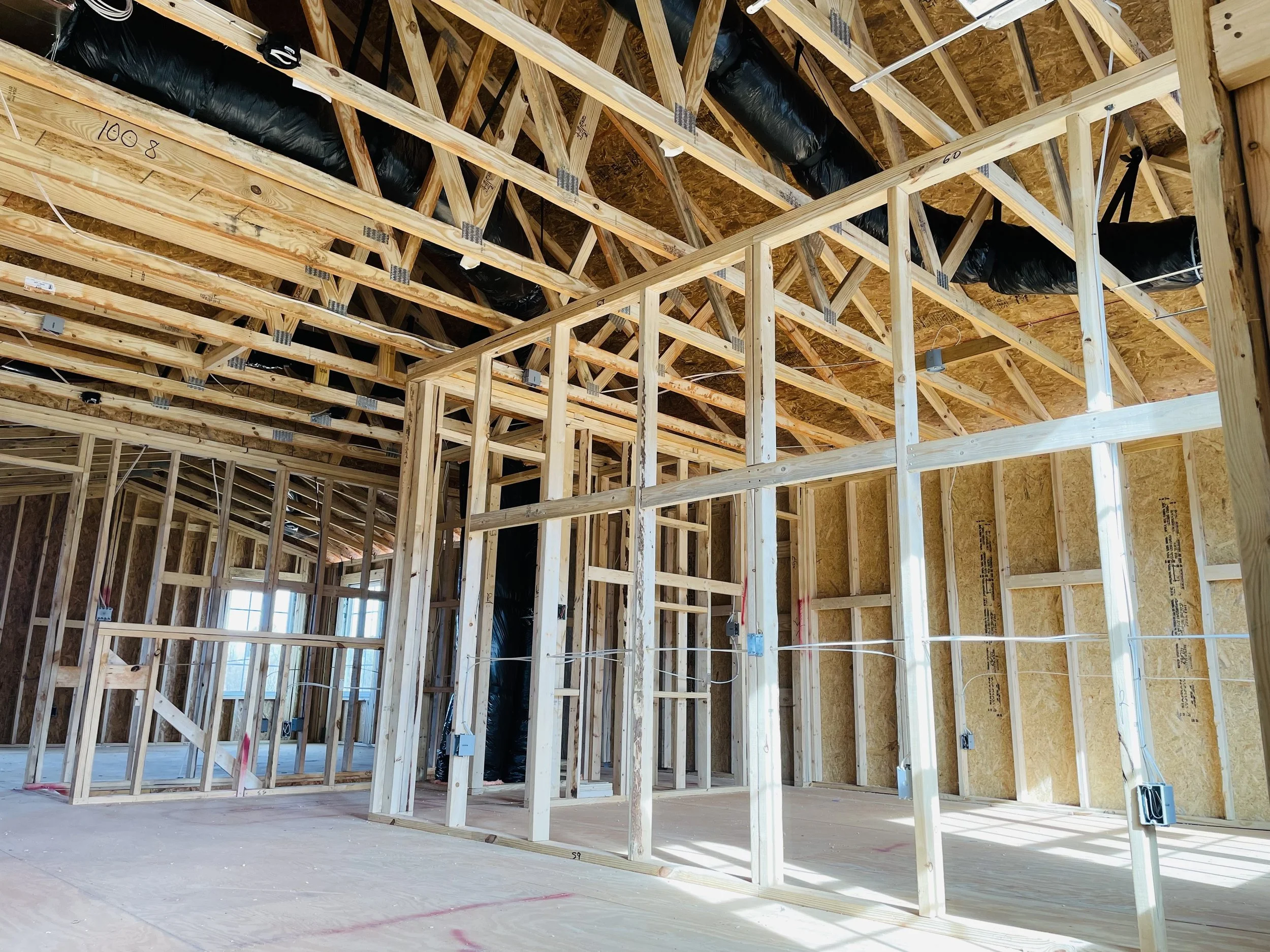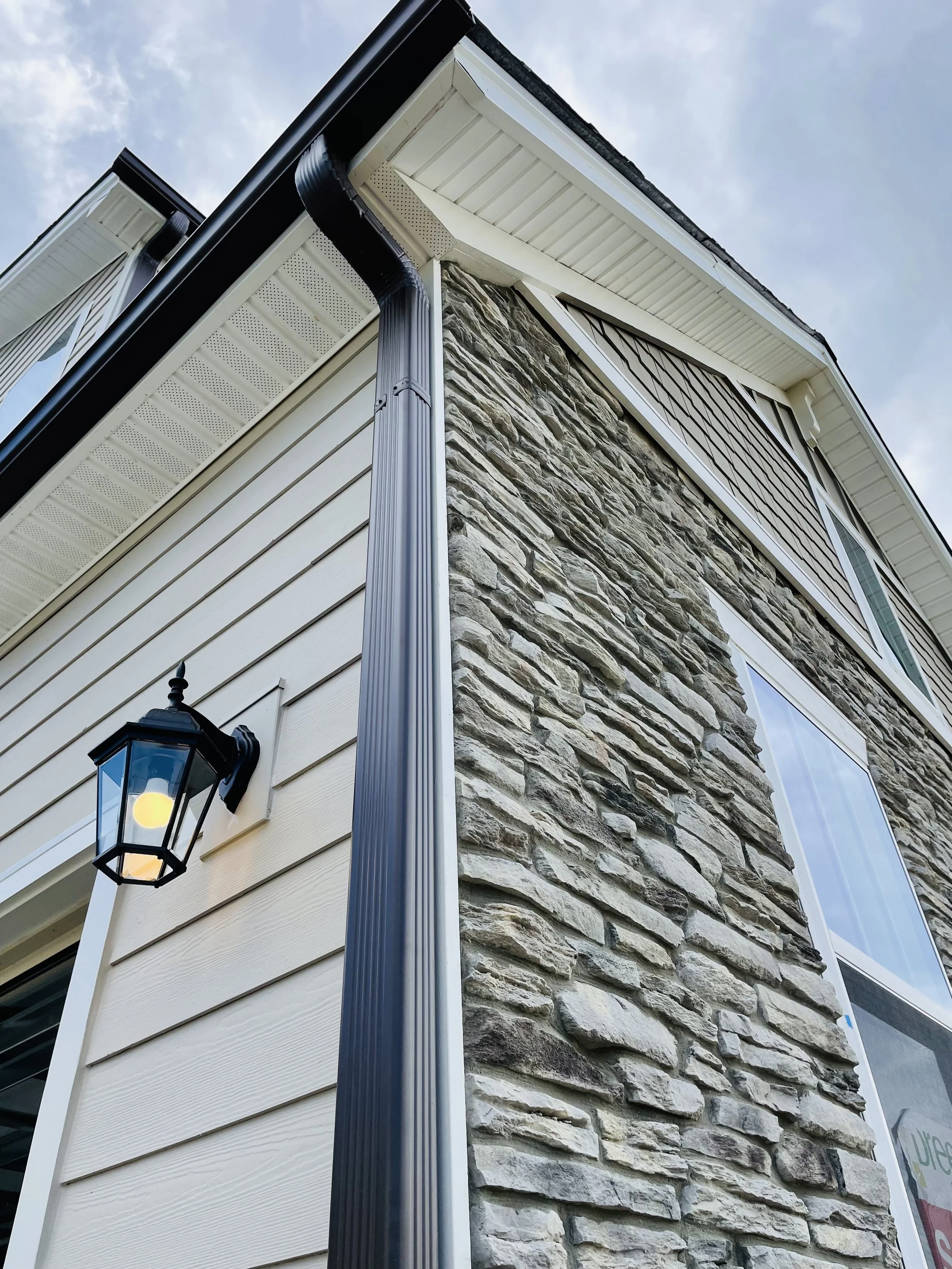
Inspections
Single Component Inspections
Full Property Inspections
Pre-Purchase Inspections
Ongoing Maintenance & Safety Inspections
Remodel & Repair
Historic Home Restorations
New Home Additions
Painting & More
New Construction
Residential & Commercial Projects
Custom Homes & Additions
Full Project Management & Coordination
Testing
Water Quality Testing
Asbestos Testing
Lead-Based Paint Testing
North Carolina defines a home inspection as :
The visual inspection of the readily accessible systems and components of a residential building
. This inspection is conducted to identify material defects and provide a written report of findings. According to the North Carolina Home Inspector Licensure Board (NCHILB), a home inspection must adhere to the North Carolina Standards of Practice and Code of Ethics and typically includes an evaluation of the following:
• Structural components (foundation, floors, walls, ceilings, roof)
• Exterior components (siding, doors, windows, grading)
• Roofing system (shingles, flashing, drainage)
• Plumbing system (pipes, fixtures, water heaters)
• Electrical system (wiring, service panels, outlets)
• Heating and cooling systems (HVAC, furnaces, ductwork)
• Insulation and ventilation (attics, crawl spaces)
• Built-in kitchen appliances.
A home inspection is not a code compliance evaluation, nor does it guarantee future performance. The inspector provides an objective assessment of the home’s condition at the time of inspection.
Pre-Drywall Inspections:
Planning a new construction project? Before the drywall goes up, ensure that your investment is protected with a pre-drywall inspection.
This essential step allows you to verify that all essential rough mechanical systems are properly installed and without physical damage before covered with drywall.
HVAC: A pre-drywall inspection will help you confirm the proper installation of your heating, ventilation, and air conditioning system. Ensuring the ductwork is correctly positioned can improve efficiency and comfort in your space.
Plumbing: During this inspection, you can identify any potential plumbing issues before they become costly problems. Verify that all pipes are correctly installed and drainage systems are functioning properly.
Electrical: A thorough review of the electrical systems prevents future hazards. A pre-drywall inspection guarantees that wiring is compliant with local codes and standards, reducing the risk of electrical failures or fires.
Additionally, an exposed framing inspection offers an opportunity to check structural components. Ensure that your framing meets local standards.
Investing in a pre-drywall inspection safeguards not only your investment but also your peace of mind. Don’t wait until it's too late—address any issues now and proceed with confidence.
Commercial & Multi-Family Inspections :
• Multi-family properties (up to four units): A licensed home inspector can inspect residential buildings with up to four dwelling units under the home inspection standards.
• Commercial & larger multi-family properties (five or more units): These typically fall under commercial property inspections, which are not regulated by NCHILB. Inspectors conducting these assessments often follow industry standards such as ASTM E2018-15.
A commercial property inspection is a thorough evaluation of a property to assess its condition, identify potential issues, and ensure compliance with relevant regulations. This process typically includes an examination of the building's structural integrity, electrical systems, plumbing, HVAC systems, and exterior elements such as roofs and parking lots.
Inspectors also review tenant spaces, common areas, and utility systems to provide a comprehensive overview of the property’s operational state. The findings are documented in a detailed report, which serves to inform property owners, buyers, and investors about maintenance needs, safety concerns, and potential impacts on property value.
Only licensed inspectors can legally perform residential inspections for compensation in North Carolina.
Sample collection and lab testing :
Water quality testing - Ensuring the safety and well-being of your home or business is paramount, and hiring a qualified inspector to conduct water quality testing, asbestos material testing, and lead-based paint testing is a crucial step in protecting your environment.
With professional water quality testing, you gain insights into potential contaminants that could affect your health. Whether you rely on municipal water or have a private well, our certified inspectors utilize advanced collection and reliable testing techniques to assess water safety, giving you peace of mind about what you and your family or employees are consuming.
Asbestos sample testing is essential, especially in older buildings where this hazardous material may still be present. Our thorough inspection ensures that any asbestos-containing materials are identified, allowing you to take the necessary precautions to mitigate risk. Early detection can prevent potential health complications associated with asbestos exposure, making it a wise investment for any property owner.
Lead-based paint testing is also critical, particularly in homes built before 1978, when the use of lead paint was banned. Exposure to lead can have severe health effects, especially for children and pregnant women. Our trained inspectors use reliable methods to test for lead-based paint, helping you make informed decisions regarding remediation and safety for your occupants.
By choosing our services, you are prioritizing safety and compliance. Our team is dedicated to providing accurate, unbiased testing results, ensuring you can act swiftly and effectively based on our findings. Protect your property, your health, and your peace of mind. Invest in professional testing today. Contact us to schedule your sample collection.
Our best efforts Guaranteed! For the peace of mind you deserve.
Inspector?
General Contractor
Description & Benefits
General contractor is a professional who oversees and manages construction projects from start to finish. They act as the primary point of contact between clients, subcontractors, and suppliers, ensuring that all aspects of the project are executed smoothly and efficiently.
Hiring a general contractor offers numerous benefits:
Expertise and Experience: A general contractor brings years of industry knowledge and experience, ensuring that your project adheres to local building codes, safety regulations, and best practices.
Project Management: With a general contractor, you have someone dedicated to managing timelines, coordinating subcontractors, and overseeing the day-to-day operations. This reduces the burden on you and ensures the project stays on track.
Cost-Effective Solutions: General contractors have established relationships with suppliers and subcontractors, often leading to better pricing and more effective resource allocation. They can help you stay within budget while ensuring quality workmanship.
Single Point of Contact: Instead of juggling multiple contractors, tradespeople, and suppliers, a general contractor simplifies communication by serving as a single point of contact for all parties involved in your project.
Problem Solving: Construction projects often come with unexpected challenges. A general contractor has the expertise to quickly address issues, finding solutions that minimize delays and keep the project progressing.
Quality Control: A general contractor ensures that all work meets high-quality standards. They monitor progress and enforce quality assurance measures, giving you peace of mind that the end result will meet or exceed your expectations.
In conclusion, hiring a general contractor streamlines the construction process, saves time and money, and ensures a high-quality outcome. By entrusting your project to a professional, you can focus on your vision while they manage the details.
NC General Contractor #103047
Licensed property inspector plays a critical role in the real estate and construction industries, ensuring that properties meet the necessary standards of safety and quality. Here's why hiring a licensed inspector is beneficial for you.
Hiring a licensed inspector offers numerous benefits:
Expertise and Knowledge: Licensed inspectors have undergone extensive training and have a deep understanding of building codes, safety regulations, and construction practices. Our expertise helps identify issues that may not be visible to the untrained eye.
Comprehensive Assessments: Professional inspectors conduct thorough evaluations of the property’s structure, system, and components, including the roof, plumbing, electrical systems and foundation. This wide-ranging inspection can save you from future headaches.
Risk Mitigation: By revealing hidden defects or safety concerns, licensed inspectors help you avoid costly repairs and unforeseen risks after closing a deal. Our insights can be crucial for making informed purchasing decisions.
Peace of Mind: Knowing that a qualified professional has assessed the property can reduce stress and uncertainty during the buying or selling process. This assurance is invaluable for owners and investors alike.
Detailed Reporting: Licensed inspectors provide detailed reports that outline their findings, including photographs and recommendations. This documentation is essential for tracking projects, awareness of current conditions and future reference.
Negotiate Effectively: With a comprehensive inspection report, you can negotiate repairs or price reductions with sellers based on findings that may warrant attention or immediate action.
In conclusion, hiring a licensed inspector is a wise investment for anyone involved in real estate. Our expertise not only ensures that your property complies with safety standards but also empowers you with knowledge that can lead to better financial decisions. For peace of mind and a thorough assessment, consider partnering with a Spector Services.
NC Inspector #4482















